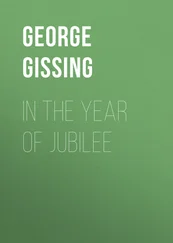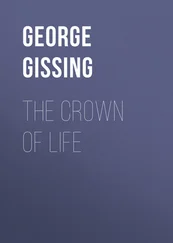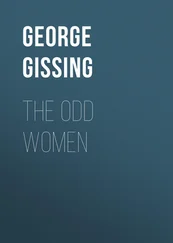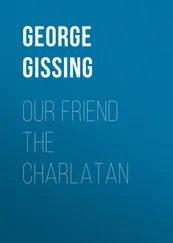George Gissing - The Whirlpool
Здесь есть возможность читать онлайн «George Gissing - The Whirlpool» — ознакомительный отрывок электронной книги совершенно бесплатно, а после прочтения отрывка купить полную версию. В некоторых случаях можно слушать аудио, скачать через торрент в формате fb2 и присутствует краткое содержание. Жанр: foreign_prose, literature_19, foreign_antique, на английском языке. Описание произведения, (предисловие) а так же отзывы посетителей доступны на портале библиотеки ЛибКат.
- Название:The Whirlpool
- Автор:
- Жанр:
- Год:неизвестен
- ISBN:нет данных
- Рейтинг книги:4 / 5. Голосов: 1
-
Избранное:Добавить в избранное
- Отзывы:
-
Ваша оценка:
- 80
- 1
- 2
- 3
- 4
- 5
The Whirlpool: краткое содержание, описание и аннотация
Предлагаем к чтению аннотацию, описание, краткое содержание или предисловие (зависит от того, что написал сам автор книги «The Whirlpool»). Если вы не нашли необходимую информацию о книге — напишите в комментариях, мы постараемся отыскать её.
The Whirlpool — читать онлайн ознакомительный отрывок
Ниже представлен текст книги, разбитый по страницам. Система сохранения места последней прочитанной страницы, позволяет с удобством читать онлайн бесплатно книгу «The Whirlpool», без необходимости каждый раз заново искать на чём Вы остановились. Поставьте закладку, и сможете в любой момент перейти на страницу, на которой закончили чтение.
Интервал:
Закладка:
'Well,' he said at length, rising, 'it's very jolly to see you again, after all this time. I shall be staying here for a few days. You'll let me call tomorrow?'
At once glad and sorry to see him go, Alma laughingly gave the desired permission. When, that evening, she looked at her unfinished letter, it seemed such a miserable whine that she tore it up in annoyance. Dymes's visit had done her good; she felt, if not a renewal of hope, at all events the courage which comes of revived spirits.
The next day she awaited his arrival with a pleasant expectation. He entered humming an air—another new composition—which again she caught from him and played on the violin.
'Good, don't you think? I'm in great vein just now—always am in the spring, and when the weather's fine. I say, you're looking much better today—decidedly more fit. What do you do here for exercise? Do you go to the Englische Garten? Come now, will you? Let's have a drive.'
With sudden coldness Alma excused herself. The musician scrutinised her rapidly, bit his lip, and looked round to the window; but in a moment he had recovered his loud good humour.
'You'll hardly believe it, but it's the plain truth, that I came all this way just to see you. I hadn't thought of coming to Germany till I met Miss Leach and heard about you. Now I'm so far, I might as well go on into Italy, and make a round of it. I wish you were coming too.'
Alma made no reply. He scrutinised her as before, and his features worked as if with some emotion. Then, abruptly, he put a blunt question.
'Do you think people who go in for music, art, and that kind of thing, ought to marry?'
'I never thought about it at all,' Alma replied, with a careless laugh, striking a finger across the strings of the violin which she held on her lap.
'We're generally told they shouldn't,' pursued Dymes, in a voice which had lost its noisy confidence, and was a little uncertain. 'But it all depends, you know. If people mean by marriage the ordinary kind of thing—of course, that's the deuce. But it needn't be. Lots of people marry nowadays and live in a rational way—no house, or bother of that kind; just going about as they like, and having a pleasant, reasonable life. It's easy enough with a little money. Sometimes they're a good deal of help to each other; I know people who manage to be.'
'Oh, I dare say,' said Alma when he paused. 'It all depends, as you say. You're going on to Italy at once?'
Her half-veiled eyes seemed to conceal amusement, and there was good-humoured disdain in the setting of her lips. With audacity so incredible that it all but made her laugh, Dymes, not heeding her inquiry, jerked out the personal application of his abstract remarks. Yes, it was a proposal of marriage—marriage on the new plan, without cares or encumbrance; a suggestion rather than a petition; off-hand, unsentimental, yet perfectly serious, as look and tone proclaimed.
'There's much to be said for your views,' Alma replied, with humorous gravity, 'but I haven't the least intention of marrying.'
'Well, I've mentioned it.' He waved his hand as if to overcome an unwonted embarrassment. 'You don't mind?'
'Not a bit.'
'I hope we shall meet again before long, and—some day, you know—you may see the thing in another light. You mustn't think I'm joking.'
'But it is rather a joke.'
'No; I never was more in earnest about anything, believe me. And I'm convinced it's a good idea. However, you know one thing—if I can be of use to you, I shall. I'll think it over—your chances and so on; something may suggest itself. You're not cut out for everyday things.'
'I try to hope not.'
'Ah, but you can take my word for it.'
With this comforting assurance, Felix Dymes departed. No melodrama; a hand-grip, a significant nod, a loud humming as he went downstairs.
Alma presently began a new letter to Sibyl Carnaby. It was written in a cheery humour, though touched by the shadow of distressful circumstance. She told the story of Mr. Dymes's visit, and made merry over it. 'I am sure this is the very newest thing in "proposals". Though I live in such a dull, lonely way, it has made me feel that I am still in touch with civilisation. And really, if the worst come to the worst—but it's dangerous to joke about such things.' She touched lightly on the facts of her position. 'I'm afraid I have not been doing very much. Perhaps this is a fallow time with me; I may be gaining strength for great achievements. Unfortunately, I have a lazy companion. Miss Steinfeld (you know her from my last letter, if you got it) only pretends to work. I like her for her thorough goodness and her intelligence; but she is just a little melancholisch , and so not exactly the companion I need. Her idea just now is that we both need "change" and she wants me to go with her to Bregenz, on the Bodensee. Perhaps I shall when the weather gets hot.'
It had surprised her to be told by Felix Dymes that he obtained her address at Munich from Miss Leach, for the only person in England to whom she had yet made known her departure from Leipzig was her step-mother. Speak of her how they might, her acquaintances in London still took trouble to inform themselves of her movements. Perhaps the very completeness of the catastrophe in which she was involved told in her favour; possibly she excited much more interest than could ever have attached to her whilst her name was respected. There was new life in the thought. She wrote briefly to Dora Leach, giving an account of herself, which, though essentially misleading, was not composed in a spirit of conscious falsehood. For all her vanity, Alma had never aimed at effect by practice of deliberate insincerities. Miss Leach was informed that her friend could not find much time for correspondence. 'I am living in the atmosphere of art, and striving patiently. Some day you shall hear of me.' And when the letter was posted, Alma mused long on the effect it would produce.
With the distinguished violinist; the friend of Herr Wilenski, spoken of to Mrs. Frothingham, she had as yet held no communication, and through the days of early summer she continued to neglect her music. Indolence grew upon her; sometimes she spent the whole day in a dressing-gown, seated or reclining, with a book in her hand, or totally unoccupied. Sometimes the military bands in the public gardens tempted her to walk a little, or she strolled with Miss Steinfeld through the picture galleries; occasionally they made short excursions into the country. The art student had acquaintances in Munich, but did not see much of them, and they were not the kind of people with whom Alma cared to associate.
In July it was decided that they should go for a few weeks to Bregenz; their health called for the change, which, as Miss Steinfeld knew of a homely pension , could be had at small expense. Before their departure the art student was away for a few days, and, to relieve the dreariness of an existence which was becoming burdensome, Alma went out alone one afternoon, purposing a trip by steam-tram to the gardens at Nymphenburg. She walked to the Stiglmeyerplatz, where the tram starts, and there stood waiting. A carriage drove past, with a sound of English voices, which drew her attention. She saw three children, a lady, and a gentleman. The last-mentioned looked at her, and she recognised Cyrus Redgrave. Whether he knew her face seemed uncertain. Hoping to escape unobserved, she turned quickly, and walked a few yards. Before she faced round again, a quick footstep approached her, and the next moment Mr. Redgrave stood, hat in hand, courteously claiming her acquaintance.
'I thought I could not possibly be mistaken!'
The carriage, having stopped for him to alight, was driving away.
'That is my sister and her children,' said Redgrave, when he had warmly shaken hands and expressed his pleasure at the meeting. 'You never met her. Her husband is in India, and you see me in full domesticity. This morning I posted a note to you; of course, you haven't received it yet.'
Читать дальшеИнтервал:
Закладка:
Похожие книги на «The Whirlpool»
Представляем Вашему вниманию похожие книги на «The Whirlpool» списком для выбора. Мы отобрали схожую по названию и смыслу литературу в надежде предоставить читателям больше вариантов отыскать новые, интересные, ещё непрочитанные произведения.
Обсуждение, отзывы о книге «The Whirlpool» и просто собственные мнения читателей. Оставьте ваши комментарии, напишите, что Вы думаете о произведении, его смысле или главных героях. Укажите что конкретно понравилось, а что нет, и почему Вы так считаете.












